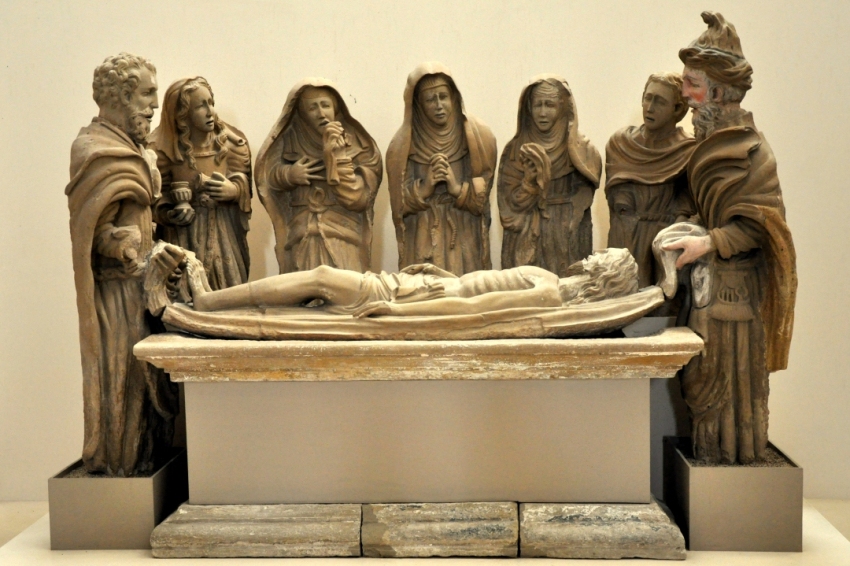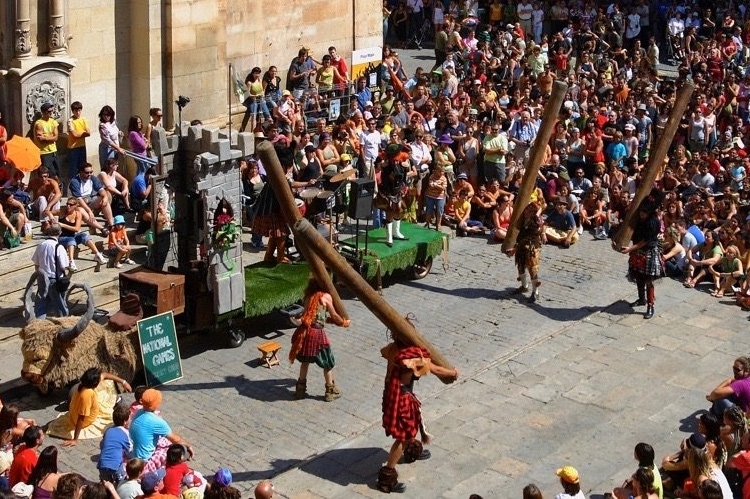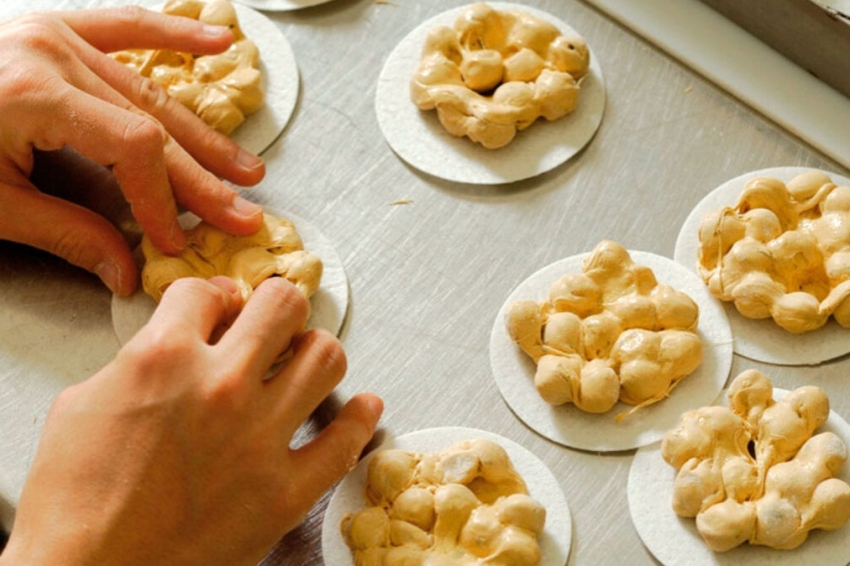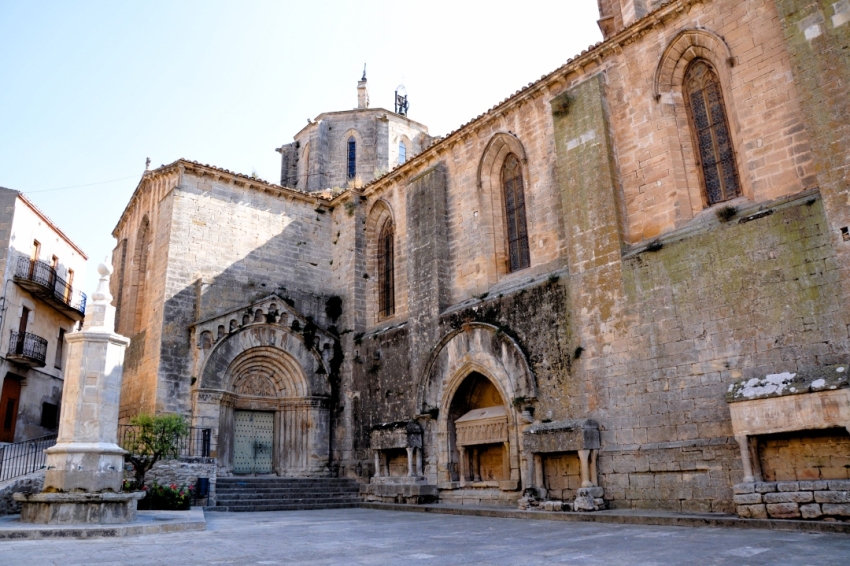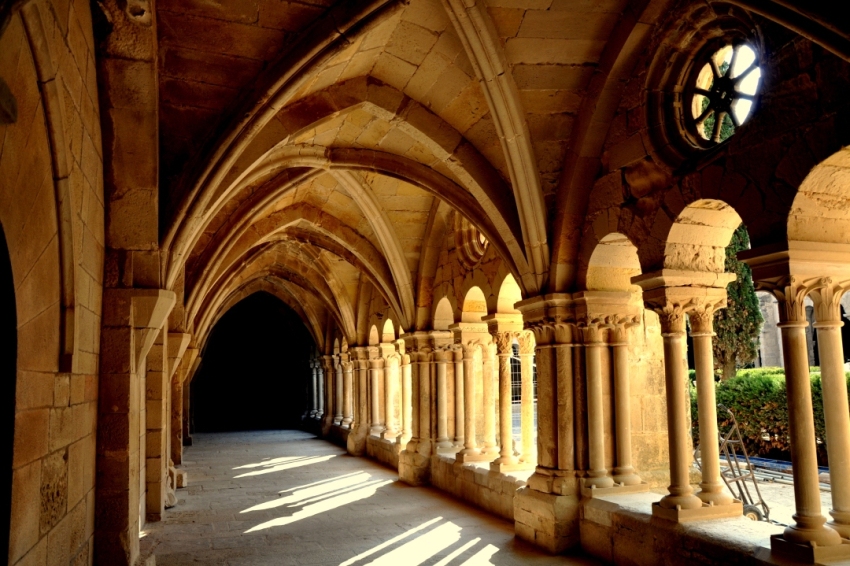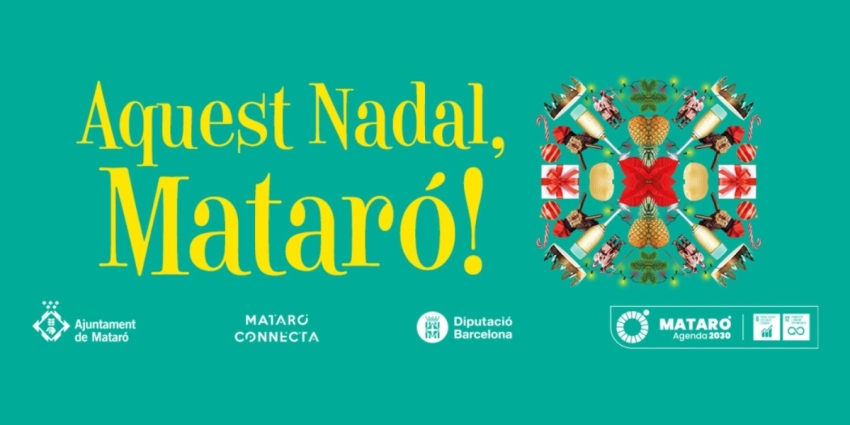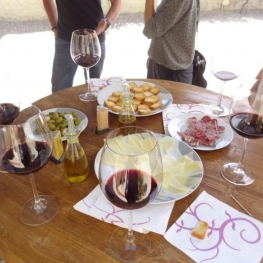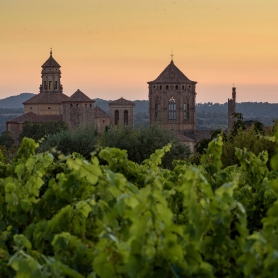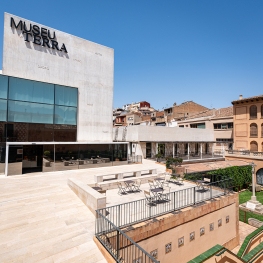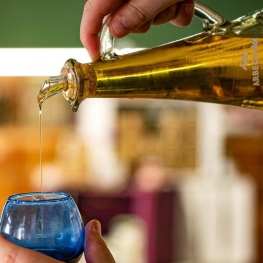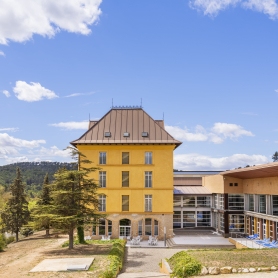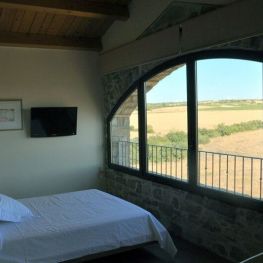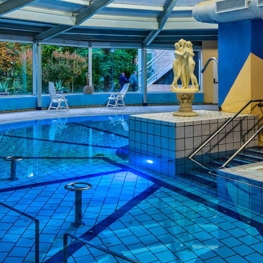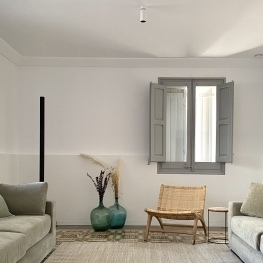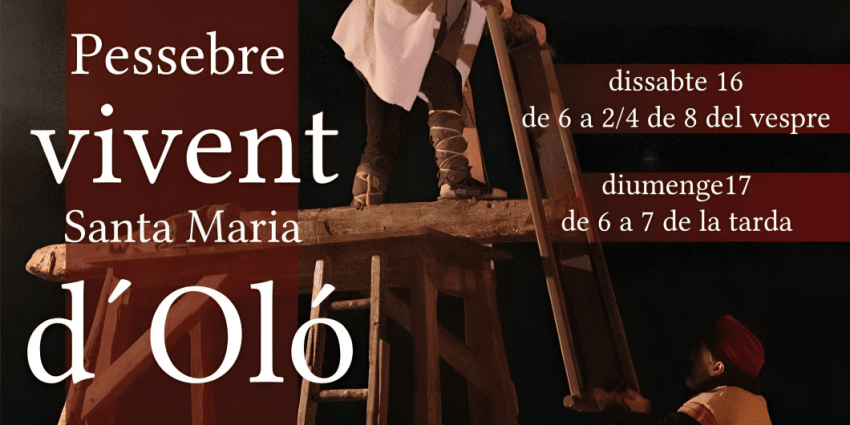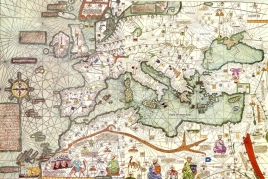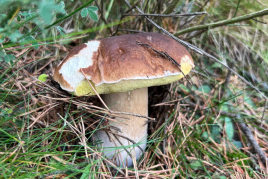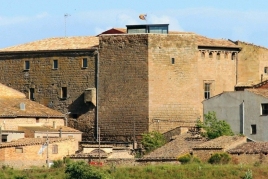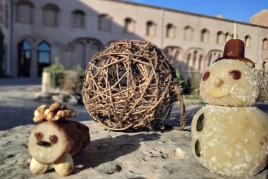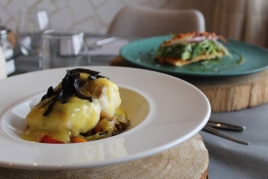Cistercian Route: gastronomy in Vallbona de les Monges
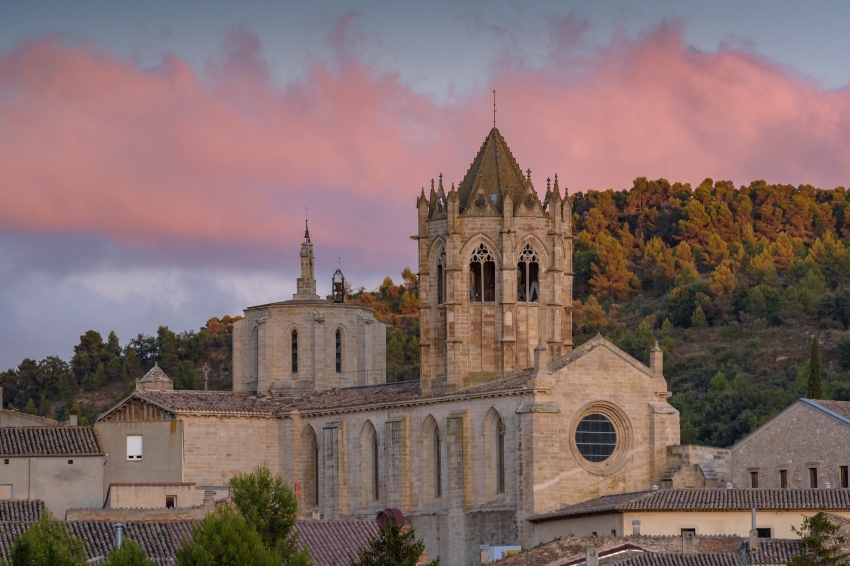
On this route we suggest you visit the Monastery of Santa María de Vallbona de las Monjas, a female monastery that is included in the Cistercian Route.
We will also make interesting proposals to get to know some of the most charming towns found in the area, and thus discover its fantastic treasures, such as nougat and chocolate, wine or one of the best virgin oils in Catalonia.
The Monastery of Santa María de Vallbona de les Monges is the smallest, but the only female monastery on the Cistercian Route. From the moment of its construction, in 1153, it has always been inhabited by nuns who have ensured its conservation and the good treatment of their guests, a reputation that continues to this day. In its history it was considered a place worthy of queens, so we find many references to women and daughters of the Catalan nobility and currently offers a pleasant accommodation for lovers of tranquility. Likewise, a visit is recommended for lovers of art and heraldry, since a wide collection of shields of the Catalan nobility are preserved sculpted in the tombs of Vallbona.
The monastery is located in the region of Urgell, very rich gastronomically speaking. Recognized for its wine with the Costers del Segre designation of origin, for the protected geographical indication of Agramunt chocolate and artisanal nougats and for its virgin olive oil with the Les Garrigues designation of origin.
Capital of the Theatre... Tárrega
The capital of Urgell is known inside and outside Catalonia for the Street Theater Fair that is held every year at the beginning of September. This event turns the city of Tàrrega into a bustle of people and spectacle, with groundbreaking theater and new companies as well as the most renowned groups taking place.
Beyond these holidays, the city is welcoming and offers us unique corners throughout the year. We will highlight the Parque de Sant Eloi, a green area created in 1913 by the residents themselves with the desire to maintain wooded areas in the town and which, currently, much larger and perfectly cared for, is a symbol of the city where you can walk and enjoy the tranquility.
In the old part of the city we will find unique buildings scattered around the streets of the center that show the passage of different styles of construction through the city. To highlight the Palace of the Marquises of La Floresta and the Gothic portals of Calle del Carmen, the spring of water, the work of Carlos Buigas, author of the fountains of Montjuïc in Plaza del Carmen, the Renaissance-style Town Hall and the building of the Chamber of Commerce in the Plaza Mayor and the 14th century church in the Plaza de Sant Antoni.
Aromas of crafts throughout the region
If we take the C-14 towards the north, we will leave Tàrrega to head towards Agramunt. This municipality is the most tempting in the region with a long tradition of chocolate making and making artisanal nougat. A walk through the center will allow us to get to know the town and contact some of the artists of nougat and stone chocolate , foods that we should not be trying.
Taking the same road to the south we will find Verdú, this small municipality has a strong attraction for children as it is home to the Museum of Toys and Automata, but it is also known for the production of black ceramics. Tradition says that each house had a black jug, also called a chair, outside the street door to give the workers a drink when they returned from the piece (cultivation field). If we walk through the center of Verdú we can enter a workshop where we can appreciate the techniques they use.
Following the same C-14 road to the south and turning left we will arrive at Guimerà, this small town is a medieval nucleus built on the Corb River that perfectly preserves its essence. We will be able to walk and visit different original buildings as well as taste food from the time. In the same municipal area, the Sanctuary of the Virgen de la Bovera stands, also of the Cistercian order.
If you still want more, we can continue the detour we have taken to reach Guimerà to the town of Albió, now in the Conca de Barberà region, where it is said that the best cheeses in these regions are produced.
Before arriving at the Monastery of Vallbona de les Monges we will visit one last municipality, also strongly dedicated to gastronomy. It is Malda. If we return to the C-14 road and take the detour indicated on the right, we will arrive at this municipality renowned for its production of oil, included in the Denomination of Origin of Les Garrigues oil.
Towards Vallbona de les Monges
From Maldà, as well as from a large part of the surrounding towns, we will find indications of the Monastery of Santa María de Vallbona de les Monges.
The Monastery of Vallbona de les Monges is a Cistercian monastery located in the La Segarra region, in the province of Lleida. It is one of the three female Cistercian monasteries that are still active in Catalonia.
The monastery was founded in 1153 by Ramon Berenguer IV, as a female monastery of the Cistercian order, although it was not finished until the 16th century. It was built in a Cistercian Romanesque style, characterized by simplicity and austerity, although you can find different architectural styles, a sample of the architectural evolution during the years of its construction. The cloister galleries, for example, each have a different style, Arabic, Romanesque and Gothic.
The main building of the monastery is the church, dedicated to Santa María de Vallbona, which stands out for its simple and pure lines.
The Vallbona de les Monges Monastery has been a religious and cultural center for centuries. During the Middle Ages, the living Cistercian nuns performed agricultural and craft tasks to maintain the monastery. They were also known for their dedication to studies and their literary production.
The war affected the monastic life of Vallbona, even causing the monastery to be vacated and looted for short periods of time, but with the persistence of the nuns, the financial aid of the nobility and later with the rehabilitation plans, we can currently know the inch by inch monastery almost as it was built.
Today, the monastery is still a space for monastic life, but it also hosts tourist visits and cultural activities. Visitors can tour the dependencies of the monastery, such as the church, the cloister, the chapter house and the monastic cells. There is also an interpretation center that offers information about the history and monastic life of Vallbona de les Monges.
he Monastery of Vallbona de les Monges is a testimony of Romanesque architecture and medieval monastic life in Catalonia. It is a place of peace and seclusion that invites visitors to go back in time and discover the cultural and spiritual richness of this monastic community.
What to do
Bodegues Visendra
Aiguamúrcia (a 23.3 Km)Enjoy a family day with your loved ones where you will be…
Museu Terra
L'Espluga de Francolí (a 14.5 Km)A visit to the Museum of Rural Life of the Carulla Foundation,…
Cooperativa Arbequina
Arbeca (a 10 Km)At Arbequina we invite you to try our traditional and premium oils…
Where to eat
Iberik Rocallaura Balneari
Vallbona de les Monges (a 4.3 Km)Iberik Rocallaura Balneari is located on the Cistercian Route, in the municipality…
El Dien Restaurant
Vallfogona de Balaguer (a 24.2 Km)We love cooking, and we love our customers to receive on the…
Where to sleep
La Torre del Codina
Tàrrega (a 3.4 Km)The Torre del Codina is located in the municipality of Talladell, municipality…
Iberik Rocallaura Balneari
Vallbona de les Monges (a 4.3 Km)Iberik Rocallaura Balneari is located on the Cistercian Route, in the municipality…
Hotel Balneari de Vallfogona de Riucorb
Vallfogona de Riucorb (a 4.2 Km)Enjoy the Hotel Balneario de Vallfogona de Riucorb, which has modern facilities…
Cal Guineueta
Cubells (a 14.2 Km)A late 19th-century family home recently renovated as a holiday home, close…

